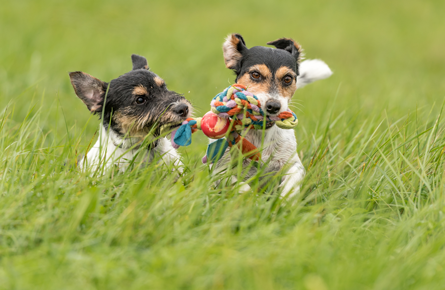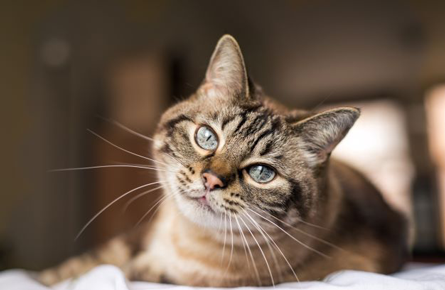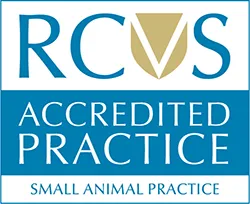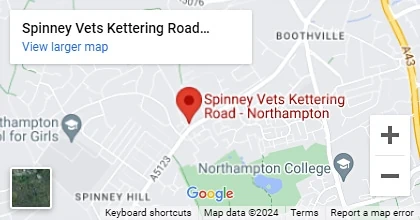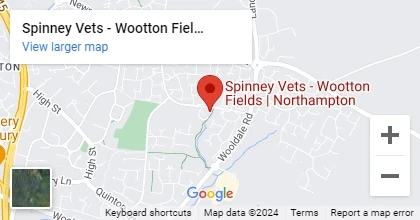Rabbit Dental Care From Your Local Northampton Spinney Vet
Rabbits’ teeth continue to grow throughout their lives, helping them naturally grind down coarse foods like grass and plants in the wild. In contrast, many pet rabbits are fed a mix of hay and commercially available diets.
These commercial diets tend to be lower in fibre and higher in protein, fat, and energy. As a result, rabbits can meet their nutritional needs more quickly, unlike in the wild, where they would need to graze and forage throughout the day to consume enough energy. This can lead to obesity, boredom, and, importantly, oral health problems due to insufficient wear on their teeth. Without enough chewing, rabbits can develop molar spurs, which, if left untreated, can cause painful tongue and cheek lacerations.
A lack of proper chewing and indigestible fibre can also affect gastrointestinal health. Rabbits rely on fibre to stimulate gut motility, and diets low in fibre (such as muesli or pelleted foods) can slow this process, leading to digestive issues.
Rabbits are hindgut fermenters, meaning they rely on bacteria in their hindgut to break down food. A diet that disrupts the pH or microbial balance can result in conditions like diarrhoea, gut stasis, and, in severe cases, even death. For these reasons, a balanced, fibre-rich diet is crucial to maintaining your rabbit's overall health and well-being.

Signs of Rabbit Dental Disease
Rabbits are skilled at concealing pain and discomfort, which can make it difficult for pet owners to recognise if they’re dealing with dental issues. However, there are key signs to watch for, including:
- Reduced appetite, or not eating at all
- Reduced number of faecal pellets produced
- Reduced ability or inability to ingest caecotrophs – leading to a ‘messy bum.’
- Runny eyes
- Hypersalivation and drooling
- Facial swelling due to secondary dental abscess.
If you detect any of the above signs, please contact Spinney Vets in Wooton Fields and Kettering Road to book an appointment for a vet to examine your rabbit as soon as possible.

The vet has detected oral disease in my rabbit; what does this mean?
If the front teeth (incisors) are too long, these can be shortened, this is usually performed on a conscious rabbit, but this depends on temperament.
If there is malalignment of the incisors (meaning that they don’t contact each other when closed), then shortening the teeth may provide a temporary fix, but the extraction of all incisors may be more appropriate to prevent the need for regular burring – this is something your vet would advise you on.
If your vet suspects there is spurring (sharp edges) of the back-cheek teeth (molars), a general anaesthetic will be required to facilitate a thorough examination and treatment.

What can I do to help prevent oral disease in my rabbit?
Feed a well-balanced diet high in fibre; a rabbit’s diet should be mainly made up of hay (80-85%). As a guide, this means that a rabbit should eat their body size in hay a day. This increases grinding, oral wear and promotes gut movement.
Pellet foods are advised over a mixed muesli as rabbits will pick their favourite parts of the food, often leaving the most nutritional parts. Feed a maximum of one tablespoon per day for dwarf and standard rabbits and two tablespoons for giant breeds.
We are happy to answer any questions you may have, as well as advising you on the recommended products or dental diets for your pet. Contact your nearest Spinney Vets in Wooton Fields and Kettering Road for a consultation.


